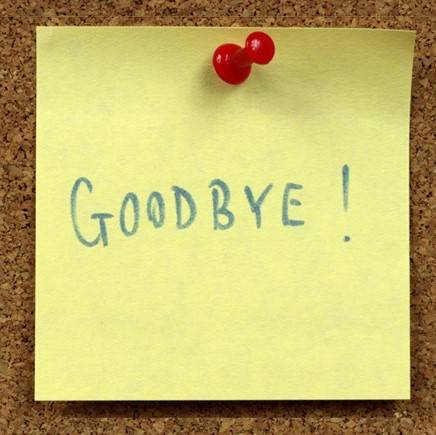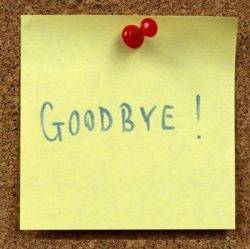July 21, 2017
Insurance claim data suggests that musculoskeletal disorders dominate workplace health
 According to an analysis of the private medical insurance (PMI) records of over 45,000 UK employees carried out by Aon Employee Benefits with its largest clients, the highest claims are for musculoskeletal disorders- almost double those for cancer related illness. In a study of reports from private medical insurers (PMI), Aon found that 31 percent of claims were for musculoskeletal concerns, while 15 percent were cancer related, 4 percent were for mental disorders and 4 percent for urology. The data forms part of its new report, Wellbeing: Examining the correlation between employee health and financial wellbeing. Among the remaining 46 percent of claims, problems included gastrointestinal issues, diagnostic and treatment planning (equally prevalent), followed by obstetrics, heart, respiratory, head/neck, trauma/injury, nervous system, and eyes, ears and dermatology.
According to an analysis of the private medical insurance (PMI) records of over 45,000 UK employees carried out by Aon Employee Benefits with its largest clients, the highest claims are for musculoskeletal disorders- almost double those for cancer related illness. In a study of reports from private medical insurers (PMI), Aon found that 31 percent of claims were for musculoskeletal concerns, while 15 percent were cancer related, 4 percent were for mental disorders and 4 percent for urology. The data forms part of its new report, Wellbeing: Examining the correlation between employee health and financial wellbeing. Among the remaining 46 percent of claims, problems included gastrointestinal issues, diagnostic and treatment planning (equally prevalent), followed by obstetrics, heart, respiratory, head/neck, trauma/injury, nervous system, and eyes, ears and dermatology.


















 The quality of the cycling facilities being offered by many workplaces are currently falling short and risk undermining a Government drive to increase the number of people cycling to work; as according to new research published by the British Council for Offices, 16 percent of office workers claim that inadequate facilities are discouraging them from considering commuting by bike. In April, the Department for Transport stated an aim to double the number of cycling stages, defined as a change in the form of transport as part of a longer “trip” (e.g. cycling to the train station before catching a train to work), from 0.8 billion stages in 2013 to 1.6 billion in 2025. However, new research, commissioned by the British Council for Offices and carried out by Remit Consulting, finds that whilst 83 percent of workplaces in the UK offer some form of bike storage, less than half (47 percent) of this is covered and secure. Improved parking facilities could help increase numbers of those cycling to work, with 16 percent of office workers surveyed saying that better bike storage would encourage them to do so.
The quality of the cycling facilities being offered by many workplaces are currently falling short and risk undermining a Government drive to increase the number of people cycling to work; as according to new research published by the British Council for Offices, 16 percent of office workers claim that inadequate facilities are discouraging them from considering commuting by bike. In April, the Department for Transport stated an aim to double the number of cycling stages, defined as a change in the form of transport as part of a longer “trip” (e.g. cycling to the train station before catching a train to work), from 0.8 billion stages in 2013 to 1.6 billion in 2025. However, new research, commissioned by the British Council for Offices and carried out by Remit Consulting, finds that whilst 83 percent of workplaces in the UK offer some form of bike storage, less than half (47 percent) of this is covered and secure. Improved parking facilities could help increase numbers of those cycling to work, with 16 percent of office workers surveyed saying that better bike storage would encourage them to do so.




 Perhaps it’s something to do with the housing issues many people from the younger generations now have to deal with; i.e. either live with parents or endure an overpriced house share, but those under 35 are reported to actually prefer working from the office to remote or home working. This differs from baby boomers, who would rather work from home. According to the survey by Maintel there are differing preferences between the multi-generational workforce, with those aged under 35 feeling they are most productive in the office (48 percent), while only 19 percent of those above 55 agree. Another reason why younger workers cling to the office is due to the fact that they require the face-to-face support of experienced co-workers. The survey also discovered that 28 percent found getting hold of colleagues or managers a challenge when working remotely. And it may also be down to the social aspects of office life and when seeking promotions – ensuring the visibility of hard work. On the other hand, older employees have responsibilities at home, and remote working allows them to be more efficient with their time.
Perhaps it’s something to do with the housing issues many people from the younger generations now have to deal with; i.e. either live with parents or endure an overpriced house share, but those under 35 are reported to actually prefer working from the office to remote or home working. This differs from baby boomers, who would rather work from home. According to the survey by Maintel there are differing preferences between the multi-generational workforce, with those aged under 35 feeling they are most productive in the office (48 percent), while only 19 percent of those above 55 agree. Another reason why younger workers cling to the office is due to the fact that they require the face-to-face support of experienced co-workers. The survey also discovered that 28 percent found getting hold of colleagues or managers a challenge when working remotely. And it may also be down to the social aspects of office life and when seeking promotions – ensuring the visibility of hard work. On the other hand, older employees have responsibilities at home, and remote working allows them to be more efficient with their time.










July 13, 2017
What we may be missing about IBM’s decision on flexible working 0
by Gary Chandler • Comment, Flexible working, Property, Workplace design
(more…)